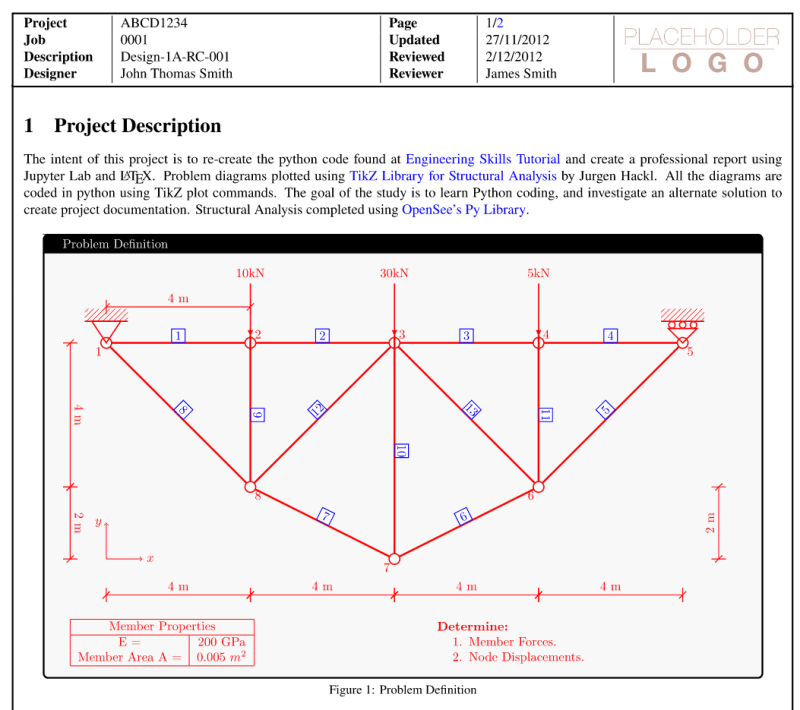Brad805
Structural
- Oct 26, 2010
- 1,517
I have been working on my python skills and have plans to make some tools for clients to use. I started with a simple truss problem from Engineering Skills (snip of below). I want to automate some design tasks, and now I am certain I can. The tools I want to create for our clients will speed up my role significanly. The guys I work with are tech savvy, but not program savvy. I was fighting to get some software to run one day and I got to thinking I should be careful which packages or add-ons I use to avoid problems for people that cannot solve the problems. Any tips on how you decide what packages you might use or is this just a problem one must deal with.


